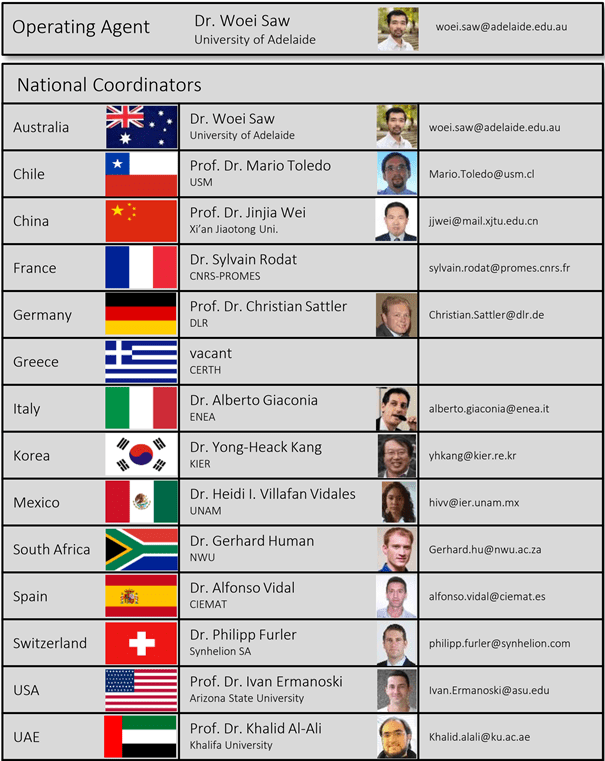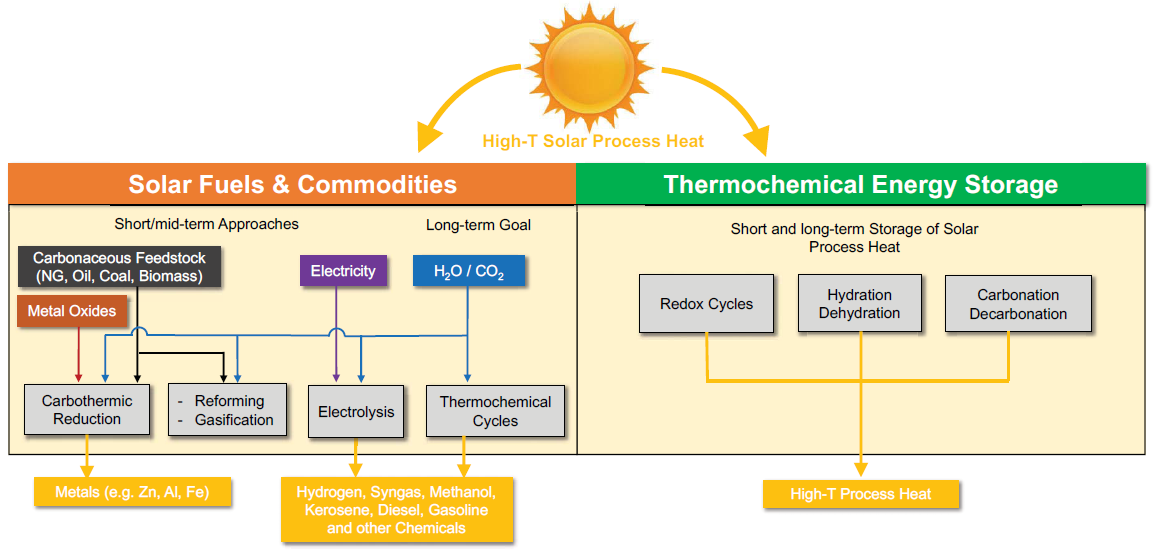Operating Agent:
Dr Woei Saw, The University of Adelaide,
woei.saw@adelaide.edu.au
Nature of the work & Objectives
Task II addresses the demonstration, scale-up, and market penetration of solar-driven thermochemical processes for the production of fuels (e.g. hydrogen, syngas, methanol, kerosene, diesel) and materials (e.g. metals – Zn, Al, Fe) or high-temperature energy storage.
Status of the Technology
Solar thermochemical processes offer efficient pathways for the conversion of carbonaceous feedstocks, minerals or pure water and carbon-dioxide into fuels and valuable materials with significantly lower greenhouse gas emissions compared to conventional processes. Concentrated solar radiation serves thereby as clean high-temperature process heat to drive the chemical reactions.
At present, solar thermochemical processes are at R&D and demonstration state. Solar hybrid technologies, which combine solar energy with a carbonaceous feedstock to form a partially renewable fuel, are closest to maturity. First pilot-scale plants (up to 500 kWth) have been built and were successfully tested. These solar-fossil hybrid technologies allow to substantially reduce net-CO2 emissions in the near-to-medium-term future and will path the way for the long-term CO2-neutral H2O/CO2 splitting technologies that have higher technical complexity.
Nevertheless, substantial progress was achieved for the CO2-neutral pathways over the last years, for example in the framework of the EU-funded research project Sun-to-Liquid, the entire production chain to CO2-neutral jet fuel (kerosene) via thermochemical splitting of water and carbon-dioxide was demonstrated on a solar tower system at IMDEA Energia near Madrid. At ETH Zurich, CO2 neutral Methanol production from air and sunlight was successfully demonstrated with a solar dish system and in the EU-funded project Hydrosol, a 100 kWth solar-chemical hydrogen pilot-facility is under construction at the Plataforma Solar de Almeria in Spain.
For more information see:
- https://www.sun-to-liquid.eu
- https://ethz.ch/en/news-and-events/eth-news/news/2019/06/pr-solar-mini-refinery.html
- https://www.youtube.com/watch?v=UvR2ai8m6y8
Published Task Reports
Roadmap to Solar Fuels: Strategy for Industry Involvement and Market Penetration
Organization and Structure
Capabilities at each of the Solar Fuels Research Institutions Globally
The operating agent is responsible for organization and reporting of Task II activities. National Coordinators are reporting the individual country activities to the operating agent and enable local contacts for international collaborations between R&D institutions and Industry. Appointed Topic Experts and Activity Leaders are reporting the status of the core technology routes and are coordinating sub-task activities.



